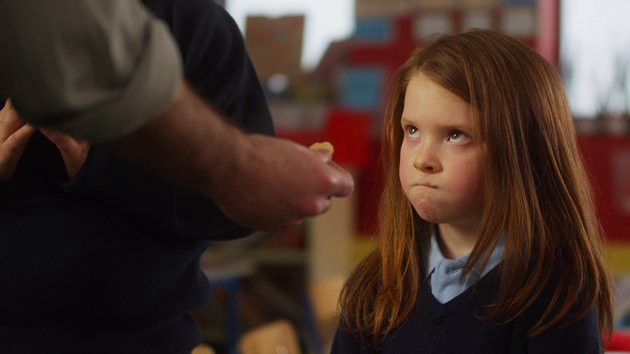Irish
director Louise Ni Fhiannachta’s love affair with storytelling started when
she discovered she could entertain her family at the age of
four and a half. It wasn’t long before
she was completely immersed in a fantasy world, creating and talking to
fictitious characters. Her mother’s Kodak Instamatic encouraged her to push her
creative limits while discovering new ways to tell stories.
Many years later, her mission remains the
same. Her short film “Rubai” continues
to be selected for international film festivals and has scooped up awards at the
Galway Film Fleadh (Best First Short) and the Charlie Chaplin Comedy Film
Festival (Best Comedy Short). She was
also presented with an honorary award by the Screen Directors’ Guild of Ireland
in November for outstanding achievement for her work on “Rubai,” and most recently it’s been nominated for an Irish Film &
Television Academy Award. (Press materials)
The 11-minute “Rubai” will debut at the Tribeca Film Festival on April 19.
Please give us your description of the film.
The First Communion is fast approaching and Rubai refuses to be part of it, claiming she’s an atheist. She faces emotional blackmail, religious and
philosophical debate, and out-and-out intolerance in today’s supposedly diverse
and modern Ireland.
What
drew you to this story?
When I read the first draft of “Rubai,” I was immediately charmed by her
character. Rubai, a Catholic, doesn’t want to make her Holy Communion and is
instead enamoured by Darwin’s theory of evolution. This independent yet
sensitive little girl had captured my heart, and I wanted to go on her journey,
question her motives, get to hang out with her. Rubai champions free thinking
that flies in the face of a society’s traditions. I didn’t want to make an
anti-Catholic, anti-establishment film; I wanted to make a film about
challenging our traditions from the perspective of a sincere seven-year-old
girl, a perspective that’s warranted due to an event in her life, a perspective
that ultimately forces us to question society’s conformity. Do we dare to be
different?
What was the biggest challenge in making the film?
The biggest challenge
was maintaining a performance from a seven-year-old girl in the limited time we
had to shoot. Because of the industrial laws regarding children in Ireland, Doireann Ni Fhoighil,
who plays Rubai, was only available to us for seven hours a day, so I knew that
simple visual compositions were imperative. For me as a director, performance
always comes first. Doireann had never acted for camera before, so getting her
comfortable with the flurry of activity on set was a priority, and teasing such
a performance from her kept me on my toes creatively. Earning the trust of
young actors is paramount, so I hung out with her before we started to rehearse.
I was captivated by her intelligence and wit — she’s got heart and soul! I also
had to keep in mind the quirky tone running through the script, and it was vital
for me that this translated onto the screen — something I think we achieved.
What advice do you have for other female directors?
I suppose
I’d give the same advice to male directors. Trust your gut, open your heart and
soul, be brave. Always be receptive to new ideas, and surround yourself with
creative people you can trust to deliver. Take risks, but, most importantly,
always learn from your mistakes.
Do you have any
thoughts on what are the biggest challenges and/or opportunities for the future
with the changing distribution mechanisms for films?
In a positive sense,
the internet has given filmmakers a platform to reach a broader audience.
Netflix is a good example of how great independent movies from all over the
world are now more accessible. On the other hand, the emergence of the mobile
phone movie has sadly left me somewhat desensitized, as there’s such an amount
of material to digest these days.
Name your favorite women directed film and why.
I don’t
go to the cinema based on whether the film I’m seeing is directed by a man or a
woman. Many fabulous films have influenced my work. But if I had to name some
films directed by women, they would be Claire Denis’ Chocolat and Sophie Fiennes’ hypnotic Over Your
Cities Grass Will Grow.







